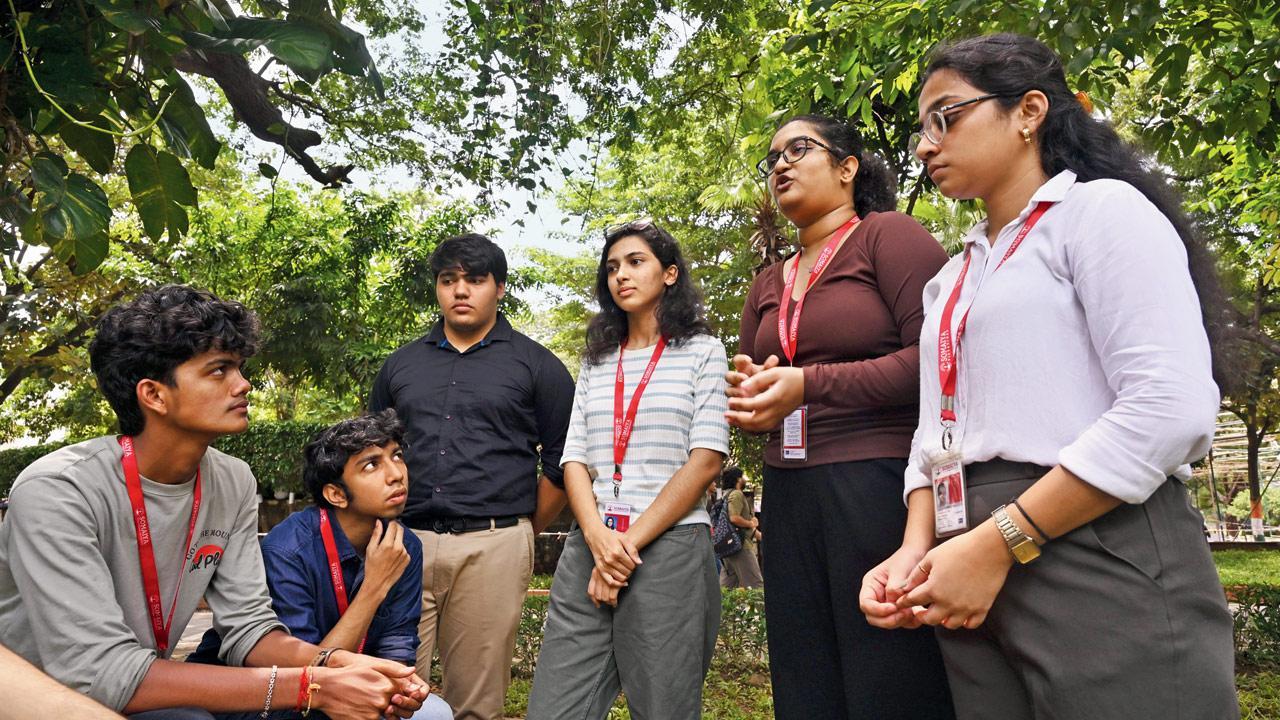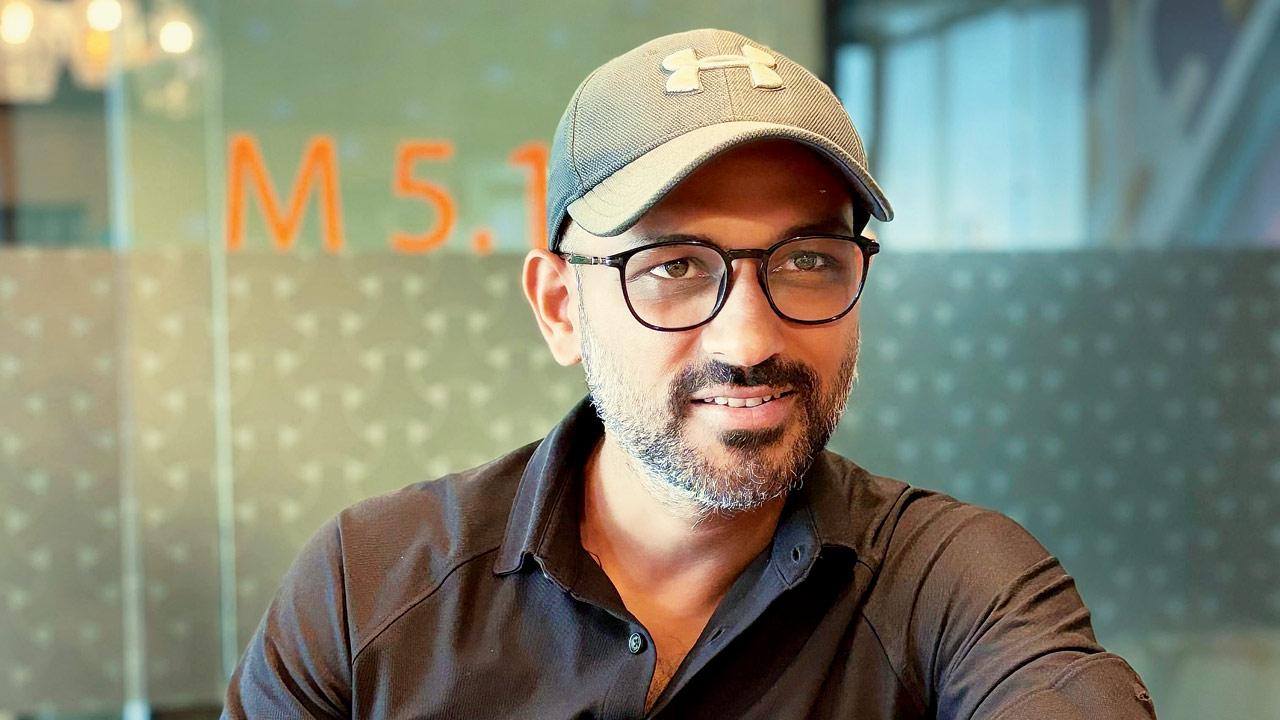Maharashtra is seeing a 5-year-low in engineering courses

Engineering, arts, and commerce students at Somaiya Vidyavihar University, Vidhyavihar. Pic/Atul Kamble
Once the top career choice of most middle-income individuals, engineering may be losing popularity in Maharashtra. The state, which has over 1,100 engineering colleges and roughly produces around 2,500-3,000 IITians per year, has witnessed this trend decline drastically. Reports suggest that nearly one-third of engineering seats in Maharashtra are vacant this year, with a total of 1,64,336 available and only 1,12,981 students confirming admissions so far. The vacancy rate has gone up to 31 per cent from 25.82 per cent last year. Chhatrapati Sambhaji Nagar and Mumbai have the highest vacancy rates at 42.2 per cent and 36.64 per cent, respectively.
ADVERTISEMENT
The reasons for this could be many: According to data, just 2.5 lakh of the 15 lakh engineers who graduate in India each year find work in the engineering sector; the rest pursue non-technical fields to stay afloat. Mumbai-based career counsellor and educational consultancy firm Holistree’s founder Dhaval Shah told mid-day that he has been observing this trend for almost a decade, but it has become much more evident now as it is the lowest drop in engineering admissions in the last five years.

Dhaval Shah
“Schools today are more liberal,” he says, “offering holistic development, which allows students to think beyond engineering and medical science. These schools train them to be more expressive, and their career choices, hence, are more liberal than previous generations. They prioritise what fascinates them, often influenced by social media and the success of influencers, vloggers, gamers, fitness experts, etc., leading them to question traditional 9-to-5 jobs. They find engineering restrictive. And modern life demands a lot—quality academics from recognised universities, relationships, a lucrative career… The children doubt the conventional path.”
Artificial intelligence and tech-savviness also have a major role to play. Aarya Thota, a first-year engineering student (IT) at Somaiya Vidyavihar University, says, “AI has impacted the job market significantly. Employers now prioritise candidates with highly specialised skill sets that require both experience and a unique work profile. This shift has raised the bar for what engineering students need to know.” Kashvi Dhankhar, also from the same batch, adds, “The curriculum has also become much more flexible these days. In college, we can club different courses together. A commerce student can take up literally any other subject as a minor course, such as chemistry, data science, or computer programming; and the syllabus is pretty similar to someone pursuing these subjects as their major. This allows our generation to think beyond the constraints of studying just one course. Today’s kids are incredibly tech-savvy, and in any field, mastering technology has become a necessity. So technology is not related to just engineering.”
Another factor, says Shah, is that while school education has evolved post the implementation of the National Education Policy, 2020, most engineering curriculums still haven’t evolved much, and outdated methods, combined with a shortage of quality professors, push many to rethink career choices. “Experiential and project-driven learning is what the new generation truly responds to,” says Shah.
“Technology has indeed become integral to both engineering and non-engineering fields,” he adds. “It’s common for commerce and humanities students to seek out IT or computer studies as minor courses, knowing they’ll need it for future jobs. Core engineering branches such as electrical, mechanical or aeronautical, however, require high specialisation and passion. Without that interest, students gravitate towards IT and computer science only.”
Ananya Shinde, a mass communication student from Somaiya Vidyavihar University, gives another reason for this shift in trend: "Work culture also plays a huge role in career decisions today. The younger generation seeks a more flexible, hybrid work environment, and we are no longer willing to tolerate the toxic work culture that previous generations have left behind. I am not saying the idea of a 9-to-5 is not appealing. It’s great to have a routine and set structure at work, but it doesn’t need to be as rigid as it used to be.”
English literature student Sneha Singh from Mumbai University echoes the sentiments, saying, “I was pushed towards studying engineering, but the thought of spending my entire life in a 9-to-5 routine sucked all the joy out of me. So, I chose Literature instead, with film appreciation as a side-subject, and I plan to pursue a career as a social media film reviewer.”
Meet Nanavaty, an engineering dropout from a private university in Vile Parle. His reasons for leaving the field are, “I realised I could earn far more managing social media accounts than I ever could as a civil engineer. The job prospects in core engineering branches are bleak, especially in PSUs, where only those with connections seem to get jobs. In the private sector, it’s a different story. Seniors told me I would need skills on my CV that could only be gained through internships, and internships in civil engineering are hard to come by. I knew that by the final year, I would be sitting for placements in IT companies or consultancy firms. I’m much happier as a social media manager.”
An alumnus of IIT BHU and Dean of Student Affairs, Spectrum, Keshav Kishore Singh has been closely associated with Class 11 and 12 students preparing for their engineering entrance exams. He says, "Today's students prioritise acquiring skills over simply earning a degree. The pandemic showed them the vast learning opportunities available online. Additionally, students from affluent backgrounds have the resources to stay informed and make well-considered decisions about their college choices. These factors are playing a significant role in the current trend we're seeing."
 Subscribe today by clicking the link and stay updated with the latest news!" Click here!
Subscribe today by clicking the link and stay updated with the latest news!" Click here!







